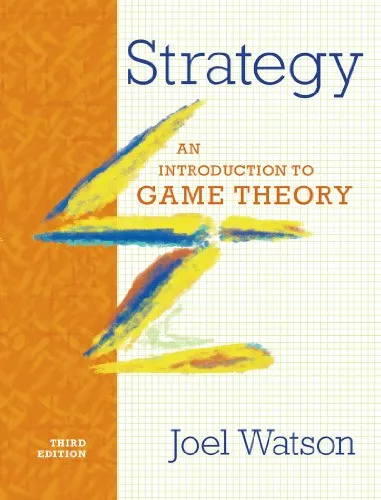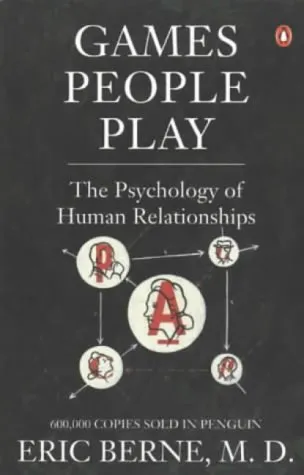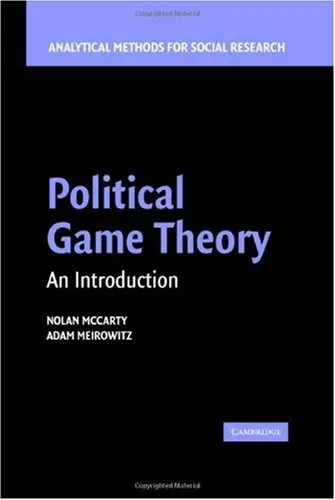Nonlinear Dynamics, Mathematical Biology, And Social Science
4.5
Reviews from our users

You Can Ask your questions from this book's AI after Login
Each download or ask from book AI costs 2 points. To earn more free points, please visit the Points Guide Page and complete some valuable actions.Related Refrences:
Introduction to "Nonlinear Dynamics, Mathematical Biology, And Social Science"
Joshua M. Epstein's "Nonlinear Dynamics, Mathematical Biology, And Social Science" is a groundbreaking work that redefines the boundaries of interdisciplinary exploration. By harmoniously integrating the principles of nonlinear dynamics with mathematical approaches to biology and social science, this book provides an expansive framework for understanding complex systems. Epstein champions a novel perspective, encouraging readers to explore the interconnectedness of life sciences, mathematical models, and human behavior, showcasing the universal applicability of nonlinear dynamics in solving real-world problems.
Detailed Summary of the Book
The book delves deep into the study of nonlinear systems—a class of systems where effects are not proportional to their causes. While traditionally associated with physical sciences, Epstein demonstrates how this mathematical discipline is equally powerful in addressing biological phenomena and the dynamics of human societies. The author builds a bridge between disciplines, offering clear and captivating examples of how nonlinear dynamics permeates various realms, from the spread of diseases to societal evolution, from predator-prey relationships to collective social behavior.
Each chapter builds upon the previous one, exploring topics such as bifurcations, chaos theory, feedback loops, and attractor states. These concepts are meticulously unpacked using accessible language, making the content valuable not only for academic researchers but also for curious readers with a basic understanding of mathematics. Mathematical ecosystems, gene regulatory networks, and even the mathematical modeling of historical societal collapses are explored in this expansive volume.
Epstein's remarkable gift lies in presenting dense scientific ideas in a way that vitalizes their relevance to everyday life. By emphasizing the dynamic and often unpredictable nature of systems—biological, sociological, and otherwise—the book sheds light on underlying laws governing seemingly chaotic occurrences.
Key Takeaways
- Nonlinear dynamics is a critical lens for comprehending the behavior of complex systems in biology and social science.
- A deeper understanding of feedback mechanisms, attractors, and bifurcations offers predictive power over natural and social phenomena.
- By developing mathematical models, we can simulate and potentially mitigate real-world issues like epidemics and societal collapses.
- Interdisciplinary collaboration between mathematics, biology, and social sciences is essential for solving 21st-century challenges.
- Complexity is not merely a complication—it is a source of insight and discovery.
Famous Quotes from the Book
- "In the tapestry of nonlinear systems, chaos is not disorder. It is the fingerprint of complex order."
- "Biological and social systems, while distinct, share an intricate web of feedback loops and self-organizing principles."
- "Mathematics is not just a theoretical playground—it is the lens through which the unseen architecture of the world can be revealed."
- "The nonlinear paradigm shows us not only how systems function but how they evolve, adapt, and often surprise us."
- "Understanding dynamics is not a luxury—it is a necessity for navigating the complexities of our age."
Why This Book Matters
"Nonlinear Dynamics, Mathematical Biology, And Social Science" is more than a textbook—it is a manifesto for interdisciplinary innovation. In a world that often compartmentalizes knowledge, Epstein breaks down these barriers, urging scholars, scientists, and leaders to see the bigger picture. The concepts in this book equip readers with analytical tools necessary to unravel the complexities of pandemics, economic crises, and global social movements.
This book matters because it catalyzes new ways of thinking about age-old challenges. It highlights how understanding the interplay between different scientific fields can generate solutions for some of humanity’s most pressing problems. Epstein's work has inspired developments in agent-based modeling, theoretical biology, and computational sociology, making the book a cornerstone for research in complexity science.
For anyone striving to understand or influence systems—whether natural, biological, or societal—Epstein’s book offers a wealth of knowledge that is both timeless and urgently relevant. By teaching us to embrace complexity, it encourages innovation and creativity, proving that nonlinear thinking holds the key to transformative progress.
Free Direct Download
You Can Download this book after Login
Accessing books through legal platforms and public libraries not only supports the rights of authors and publishers but also contributes to the sustainability of reading culture. Before downloading, please take a moment to consider these options.
Find this book on other platforms:
WorldCat helps you find books in libraries worldwide.
See ratings, reviews, and discussions on Goodreads.
Find and buy rare or used books on AbeBooks.
1416
بازدید4.5
امتیاز0
نظر98%
رضایتReviews:
4.5
Based on 0 users review
Questions & Answers
Ask questions about this book or help others by answering
No questions yet. Be the first to ask!













